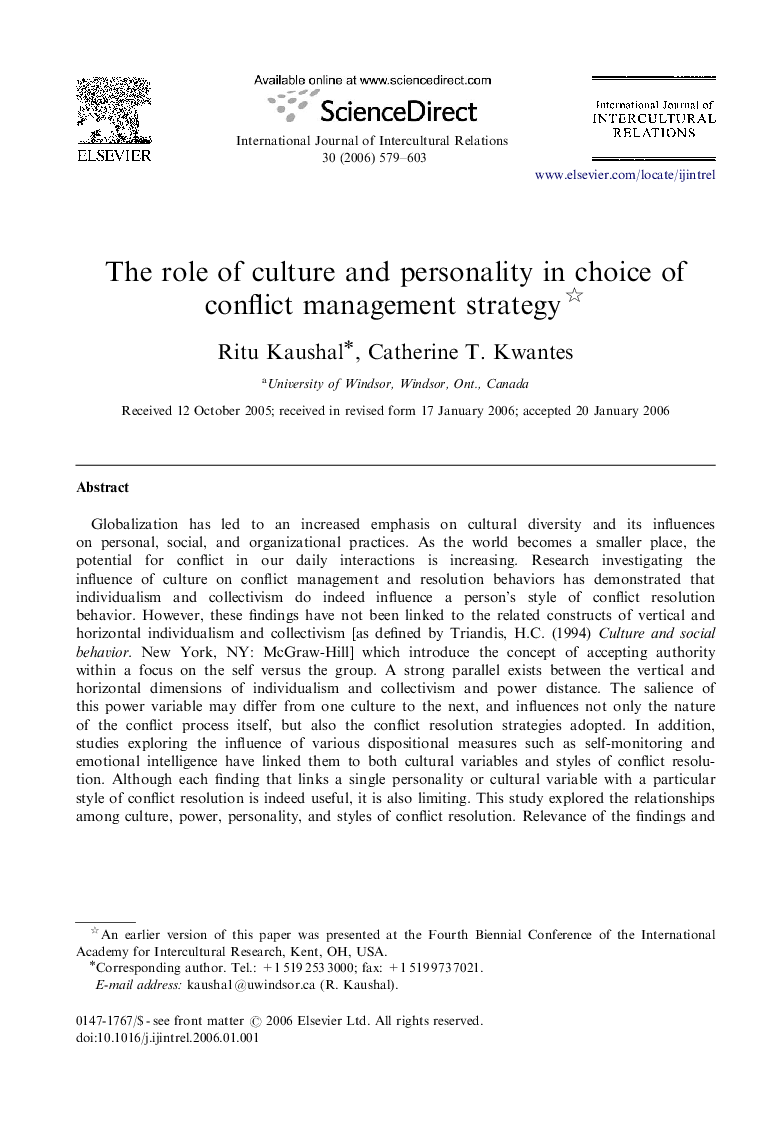| Article ID | Journal | Published Year | Pages | File Type |
|---|---|---|---|---|
| 947566 | International Journal of Intercultural Relations | 2006 | 25 Pages |
Abstract
Globalization has led to an increased emphasis on cultural diversity and its influences on personal, social, and organizational practices. As the world becomes a smaller place, the potential for conflict in our daily interactions is increasing. Research investigating the influence of culture on conflict management and resolution behaviors has demonstrated that individualism and collectivism do indeed influence a person's style of conflict resolution behavior. However, these findings have not been linked to the related constructs of vertical and horizontal individualism and collectivism [as defined by Triandis, H.C. (1994) Culture and social behavior. New York, NY: McGraw-Hill] which introduce the concept of accepting authority within a focus on the self versus the group. A strong parallel exists between the vertical and horizontal dimensions of individualism and collectivism and power distance. The salience of this power variable may differ from one culture to the next, and influences not only the nature of the conflict process itself, but also the conflict resolution strategies adopted. In addition, studies exploring the influence of various dispositional measures such as self-monitoring and emotional intelligence have linked them to both cultural variables and styles of conflict resolution. Although each finding that links a single personality or cultural variable with a particular style of conflict resolution is indeed useful, it is also limiting. This study explored the relationships among culture, power, personality, and styles of conflict resolution. Relevance of the findings and their implications with respect to conflict management and resolution issues across cultures are discussed.
Keywords
Related Topics
Social Sciences and Humanities
Business, Management and Accounting
Business and International Management
Authors
Ritu Kaushal, Catherine T. Kwantes,
